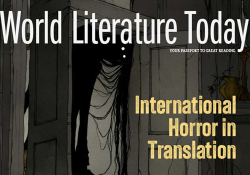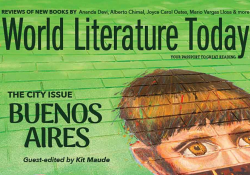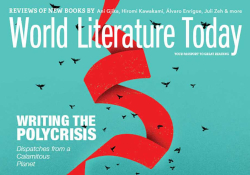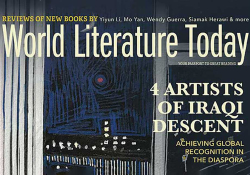Editor’s Note
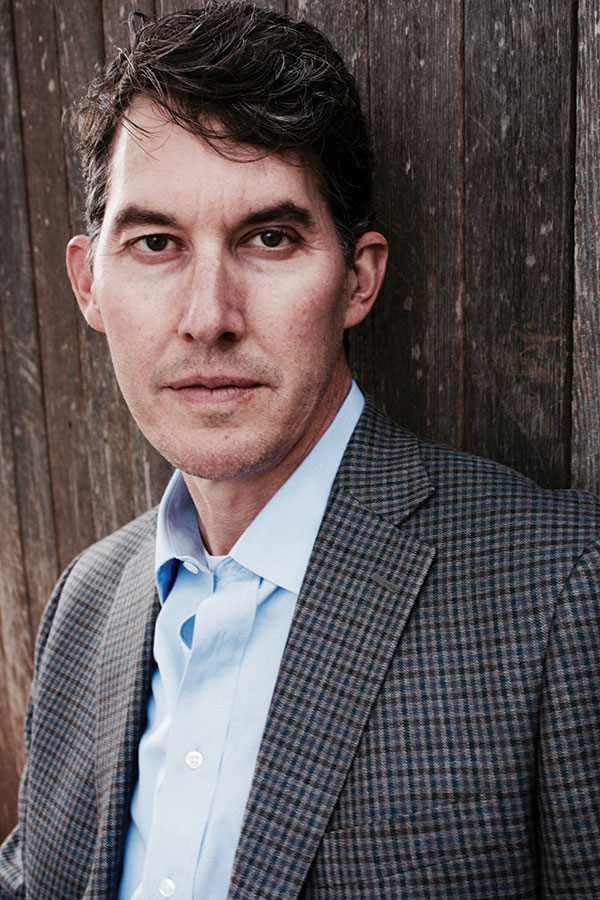 We’ll want to know what happened, and why—not just the factual whys . . . but the why of the human psyche. – Rilla Askew, “Cataclysm”
We’ll want to know what happened, and why—not just the factual whys . . . but the why of the human psyche. – Rilla Askew, “Cataclysm”
ON THE COVER of this issue: sixteen empty chairs, by my count. Of all the photographs we considered for the cover, that black-and-white shot by Gianni Skaragas captured the mood we were all feeling the week of Memorial Day (May 25) in the United States as we finalized this issue for the printer. The original “Decoration Day” solemnities that arose in the 1860s honored the Union and Confederate dead. As I write this, it’s difficult not to feel overwhelmed by the sheer enormity of the current pandemic even as we become numb to the mounting statistics: 5.5 million confirmed cases globally, more than 1.7 million of those in the United States, and 350,000 deaths attributed to Covid-19 worldwide. So much untold (untolled) suffering.
I keep returning to an epigrammatic quote by Anne Carson of late: “Every time a poet writes a poem he is asking the question, Do words hold good? And the answer has to be yes: it is the contrafactual condition upon which a poet’s life depends” (Economy of the Unlost: Reading Simonides of Keos with Paul Celan). Do words still hold good? For the six writers in the “Notes from the Cataclysm” cover feature in this issue, the answer might not be an unmitigated “yes,” but it must still, at least, be possible. The Greek verb kataklyzein means to inundate, to cleanse. Imagine those tables and chairs erased from the beach. How will we narrate this latter-day deluge?
In her newest book, Norma Jeane Baker of Troy (reviewed in this issue of WLT), Carson writes: “Sometimes I think language should cover its eyes when it speaks.” In times like these, we need writers who continue to speak, especially when the temptation is to inure our sight to what lies before us. Even as we imagine the day when we’ll sit down at those empty tables again, our lives may not depend on what poets have said about living through the pandemic, but their words will give us an emotional and artistic record of it, a first reckoning—sketched in a human register—that begins to account for the enormity of it all.
Those reckonings will continue for years, inevitably. As Rilla Askew writes in her breathtaking “Cataclysm” essay, “It will take a long while, I think, for novelists to begin to tackle this slow calamity, this lugubrious apocalypse, this gradual unveiling of divine mysteries.” The Greek term apokalypsis means unveiling or revelation, she reminds us. “We’ll want to know and understand and live the motivations and hungers and fears inside the characters,” she concludes, “what happened in those dark days inside the human hearts of the ones who lived it. That will be the unveiling.”
In her review of Nino Haratischvili’s novel The Eighth Life, Apala Bhowmick—writing from Kolkata—strikes a more hopeful note. “This book was a sobering reminder,” she writes, “that human society has lived through wars, famines, plagues, and other crises and that literature and other arts have always found a way to brave these contingencies and still manage to survive. . . . The act of writing,” she continues,
is an act of vindicating one’s past, of narrating the social histories of one’s ancestors, and of trying to gather the threads of their collective trauma into a finished weave of patterns for a generation that will someday hold the reins of history in their own hands, in a battered world but also perhaps one full of renewed possibility for change.
When I think about the unveiling, however, I must ask: Will we be able to stand the unmitigated sight of it? Will our contrafactual “yes” suffice? Perhaps these writers will give us the language in which to say it.
Daniel Simon

